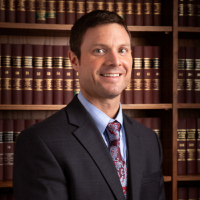Centreville Juvenile Law Lawyer, Michigan
Sponsored Law Firm
-
 x
x

Click For More Info:
-
Law Office of Mark S. Guralnick
55 Madison Avenue 4th Floor Morristown, NJ 07960» view mapCriminal Defense Law Dedicated. Fearless. Successful.
Mark S. Guralnick and his legal team have helped clients throughout the USA and across the world by applying unparalleled dedication and hard work to each case.
800-399-8371
Not enough matches for Centreville Juvenile Law lawyer.
Below are all Centreville Criminal lawyers.
Matthew Xavier Hauser
✓ VERIFIEDReady to work with you to resolve your legal needs. Vandervoort, Christ & Fisher, P.C., is a general practice law firm that is dedicated to servin... (more)
Wesley Johnson Todd
✓ VERIFIEDWesley Todd originally joined the firm as an intern in 2008. He has been a shareholder of the firm since 2020. He was born in Kalamazoo, Michigan and ... (more)
Donald H. Smith
✓ VERIFIEDDon was born and raised in Kalamazoo, Michigan and graduated from Kalamazoo Christian High School in 1989. He attended Hope College in Holland, Michig... (more)
Shaun P. Willis
✓ VERIFIEDShaun Willis, along with his brother Michael, is a co-founder and Partner of Willis Law. Willis Law has offices in Kalamazoo, Grand Rapids, and Paw Pa... (more)
Kevin Allen Dennis
Greetings, I understand you may have a need for legal counsel. My name is Kevin Dennis, I am the Principal Attorney for Compass Law, PLLC. Compass La... (more)
FREE CONSULTATION
CONTACTFREE CONSULTATION
CONTACT Mark Guralnick Morristown, NJ
Mark Guralnick Morristown, NJ AboutLaw Office of Mark S. Guralnick
AboutLaw Office of Mark S. Guralnick Practice AreasExpertise
Practice AreasExpertise





